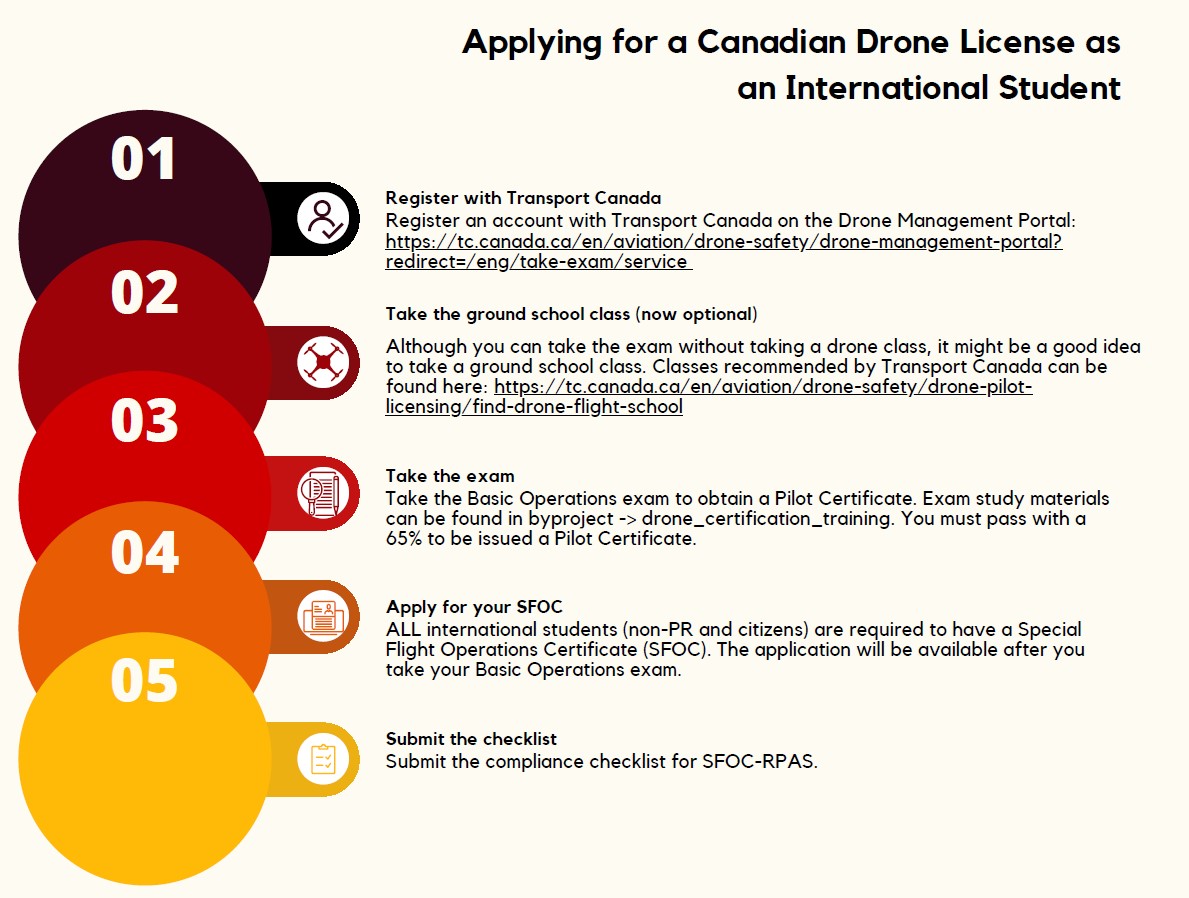Becoming a Foreign Pilot
My drone journey; how I became a foreign pilot
We are going to take a brief break from talking about the research sites we are visiting on our journey to discuss some of the logistics that come with drone research.ui Introducing my co-writer Leanna, another fellow PhD student that just completed some drone field work on Vancouver Island. </div>

She also just had her first Phd paper published (congrats!). Check out her work here: Stackhouse, L., Coops, N.C., White, J.C., Davis, D.J, (2023) Characterizing riparian vegetation and classifying riparian extent using airborne laser scanning data.~Ecological Indicators~. 152. DOI: https://doi.org/10.1016/j.ecolind.2023.110366
We are both UBC graduate students from the United States. I (Sarah) have flown drones since 2020 for both my Master’s and PhD research. Leanna started working with drones in 2023. We both had fairly similar yet ultimately different experiences applying for our SFOC’s as drone legislation is constantly changing. This post discusses the most recent application process for a foreignors to be able to fly drones in Canada. Note: we are not a legal advisors, and only describe the process to make it easier for other graduate students to fly drones for their own data collection processes.
Foreign pilots must apply for a Special Flight Operations Certificate (SFOC) issued by Transport Canada. With this certificate, Leanna and I can fly in unregulated (class G) airspace until the end of the year. Any foreign pilot must have an SFOC to fly a drone in Canada (for any purpose too!). This post does discuss the process of applying for advanced operations as our forest research sites are generally very remote.
Before applying for an SFOC there are several steps you must take prior:
- A drone pilot certificate. If you are flying in unregulated airspace you need to pass the basic operations drone exam and include this is in your application.
- A drone registered with Transport Canada. Our drones are registered with our supervisor and we include their registration number and VIN in our applications. A foreign pilot cannot register their own drones. In addition to the registration you must provide:
- Manufacturer details of the drone system
- A history of the maintenance on the system
- Contact information 4 The type of drone operation and an example of your pre-flight safety plan
- Description of the drone operation including:
- Purpose
- Dates
- A safety plan for the proposed operation. If you are interested in copy of my safety plan shoot me an email (ssmithtr@wellesley.edu)
- The safety plan must include a contingency plan for the operation including emergency operations
- Describe all equipment and personel to respond to emergencies (This is why I always carry kitty litter!)
- Describe all communication protocols
- The safety plan must include a contingency plan for the operation including emergency operations
- An operation plan. Our safety and operation plans are combined on a google form. Our safety and operation plans are generally combined. These safety plans must include:
- A description of operation including the order of events and objectives
- A site-survey with a clear depiction of the area, with boundaries expected altitudes, and hazards.
- An adequate risk assessment.
- Names, certificates, licenses, permits and qualifications of the crew members. This includes both the pilot and visual observers.
This all sounds like a lot - but once you get these all compiled you can fill out the necessary documentation. These documents include the following forms:
- Application form
- An SOFC Compliance Matrix that details the locations where you can find all of the different components listed above (I generally put the page numbers in one big combined document)
- We also recommend including a cover letter. I encourage the TC Canada staff to call me if they have any problems. It is a great idea because I have been called twice and was able to quickly fix my error on the phone!
Here is a great visualization of this whole process. </div>

We hope this blog-post is a helpful resource for those that are interested in become foriegn pilots - we love our drones because they give us so much great data!